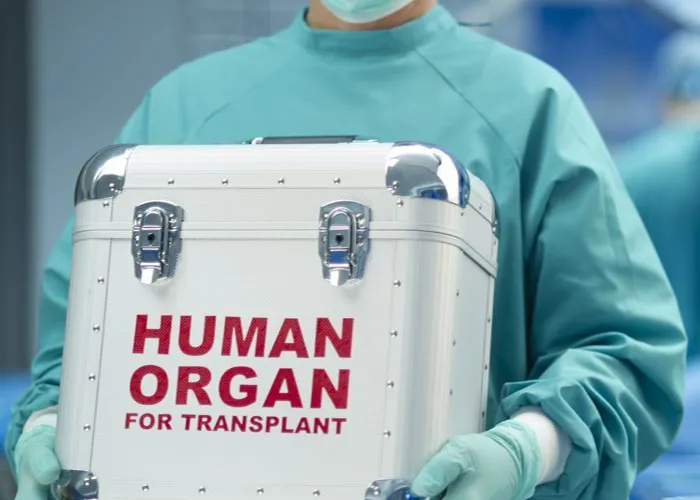religious-inquiries – volume01 Issue20
Imam Khamenei – Rules Regarding Organ Transplants
Question 1: Is it permissible to transplant organs from brain-dead individuals (those who cannot breathe on their own, have no intellect, feelings, or voluntary movements, though their heart still beats) in order to save another person’s life? Does this require prior permission from the patient or their representative?
Answer: If this operation does not cause him to die faster, then with his permission or his representative’s permission, there is no problem.
Question 2: If a patient is suffering from an incurable illness, and doctors confirm that death is imminent, is it permissible to transplant organs, such as the heart, liver, or kidneys, from this patient to save another person’s life?
Answer: If he has not died yet and these organs would be taken from a live person, then there is a problem with it. But, if generally, people say that he is dead, it would be permissible with the mentioned conditions.
Question 3: Is it permissible for individuals to sell their blood or other organs, such as a kidney or eye, with the intention of helping patients in need?
Answer: There is no problem in it if there is no harm that needs to be avoided.
(Source: Practical Laws of Islam – Imam Khamenei, leader.ir)
Ayatollah Sistani – Rules Regarding Organ Transplants
Question 1: If an organ from an atheist is transplanted into a Muslim, is the organ considered ritually pure (Tãhir) once it becomes part of the Muslim’s body?
Answer: An organ or limb extracted from the body is ritually impure (najis) irrespective of whether it came from a Muslim or a non-Muslim. And when it becomes, by rejuvenation, part of a Muslim’s body or of someone who is considered a Muslim, it becomes Tãhir.
Question 2: Is euthanasia (mercy killing) permitted?
Answer: No, mercy killing is not permissible.
Question 3: Is it permissible to turn off life-support for a dying person if doctors confirm that there is no hope for recovery and that the person will soon pass away?
Answer: It is not permissible at all to remove it.
(Source: Ayatollah Sistani’s rulings, sistani.org)
Ayatollah Makarem Shirazi – Rules Regarding Organ Transplants
Question 1: If a person gives permission during their lifetime to donate their organs after death, or if permission is given by their guardians after death, does this affect the ruling on blood money and other related rulings?
Answer: The precaution is to pay blood money in every situation.
Question 2: Is it permissible to remove an organ from a living person and transplant it into another person?
Answer: It is only permissible to extract the organ of living people and implant it in other people as is usual and known in kidney transplants, where one of the kidneys of a living individual is extracted and transplanted in the body of one whose kidneys are both damaged, provided that its owner consents and it does not expose his life to danger. The precaution, when taking a sum in exchange for that organ, is to put the payment as compensation for permission to take his organ, not in exchange for the organ itself.
Question 3: Is it permissible to use human blood for medical treatment, including surgeries or life-saving purposes, and are there any restrictions regarding the donor’s faith or gender?
Answer: The injection of human blood in the body of another human for treatment or to save life is permitted, regardless of whether it is the blood of a Muslim or non-Muslim, a man or woman. There is no objection to buying and selling blood for this purpose.
Question 4: When an organ is transplanted and becomes part of the recipient’s body, is it considered ritually impure (najis)?
Answer: When an organ is separated from a person, be he dead or alive, and transplanted into another person so that it becomes part of the latter’s body, it is not impure (najis) nor part of a corpse (maitah) in this situation. There is no objection to praying with it.
Question 5: Does touching the bodies of the deceased during postmortem procedures require Ghusl (ritual purification)?
Answer: Touching the bodies submitted for postmortems does not necessitate the Ghusl for touching the dead body (Ghusl Massil-Mayyit) if the deceased was a Muslim and had already received the baths for the deceased (Ghuslul-Amwaat). In other situations, Ghusl is obligatory when intending to pray or perform acts requiring purity (Tahaarah). If Ghusl is difficult, Tayammum can substitute it. If only bones or detached flesh (like heart, veins, or brain) are touched, Ghusl is not required. Wearing gloves also negates the need for Ghusl.
Question 6: Is blood money required in legally sanctioned postmortem examinations?
Answer: There is no blood money in the instances in which it is legally permissible to do a postmortem on a human body.
news via inbox
Subscribe to the newsletter.




